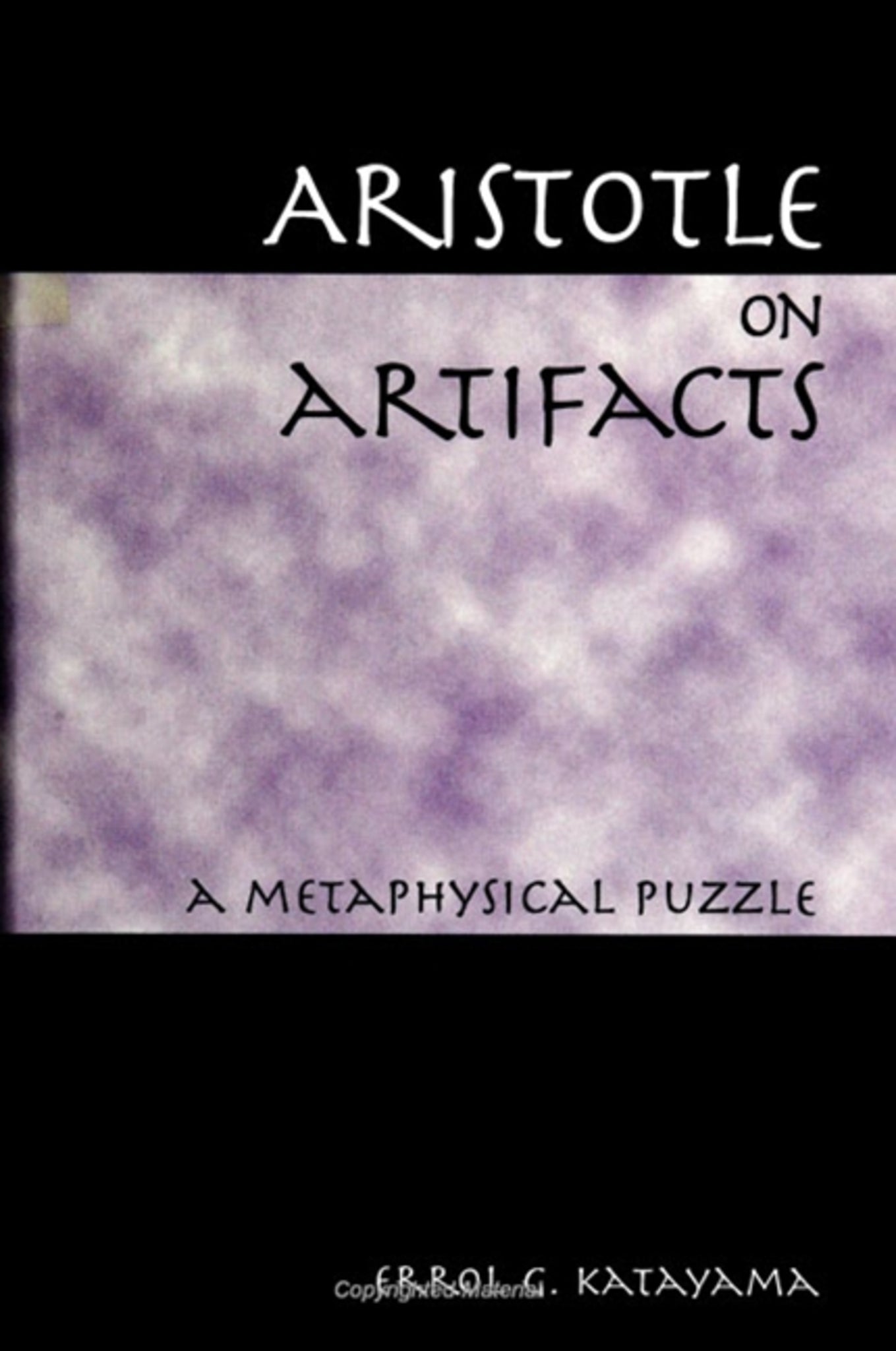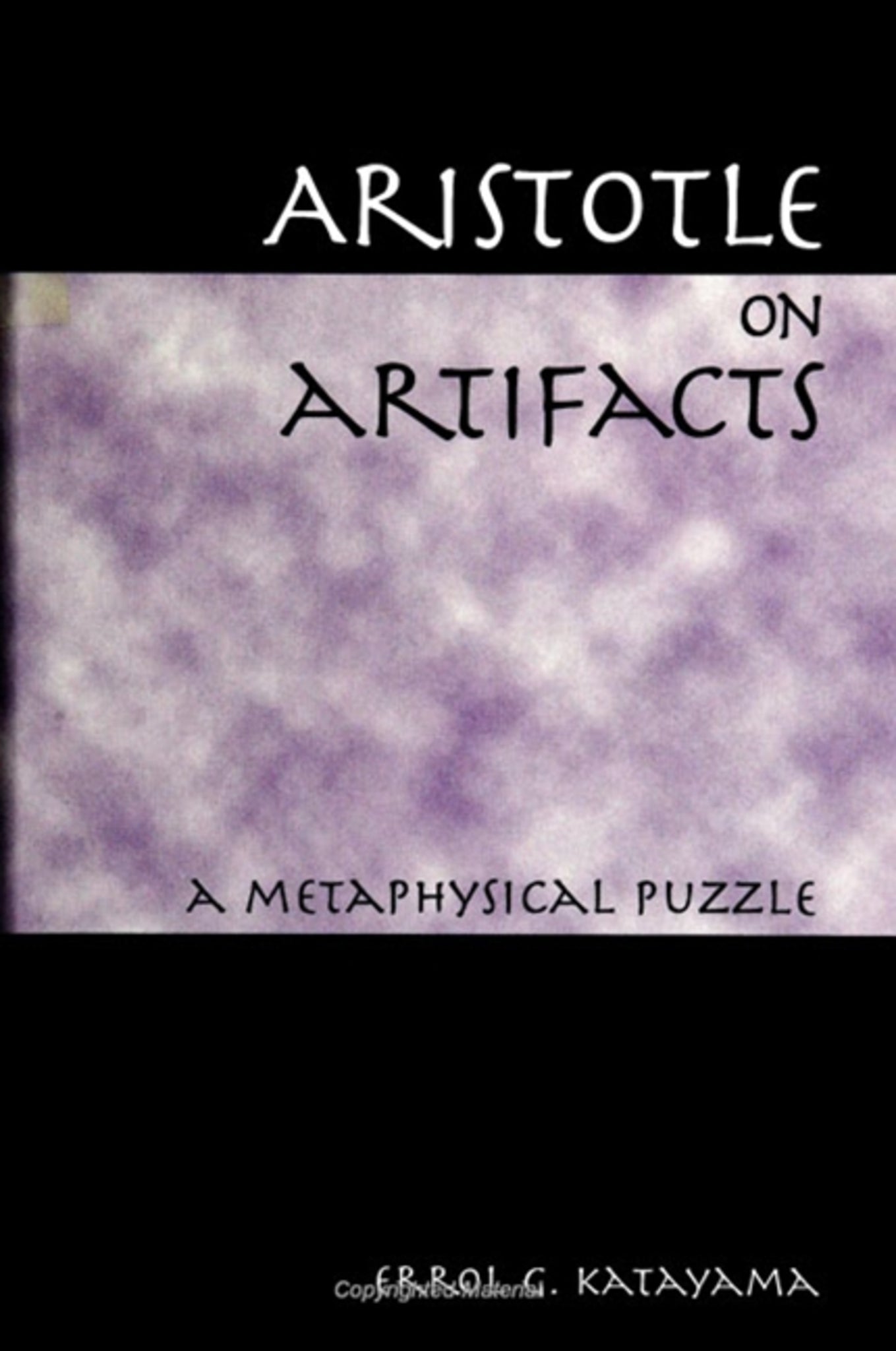We're sorry. An error has occurred
Please cancel or retry.
Aristotle on Artifacts

Some error occured while loading the Quick View. Please close the Quick View and try reloading the page.
Couldn't load pickup availability
- Format:
-
02 September 1999

Investigates Aristotle's views on the ontological status of artifacts in the Metaphysics, with implications for a variety of metaphysical problems.
Previous commentators on the Metaphysics have attributed to Aristotle the belief that all living beings are substances. This book challenges the prevailing view by addressing the question of whether, according to Aristotle, artifacts are substances. By arguing that the two criteria of substantiality are "eternity" and "actuality" (thereby excluding some organisms), and by covering Aristotle's theory of art and nature as well as his embryology, Aristotle on Artifacts offers a novel way of dealing with a number of highly controversial issues and variety of metaphysical problems.


"Does Aristotle maintain in the Metaphysics that artifacts are substances, or does he think they fall short of the criteria, whatever these are, of substantiality? This is the question Katayama sets out to answer in his book … On this ground alone Katayama's book deserves a careful reading by Aristotle scholars." — Ancient Philosophy
"Katayama does an excellent job of constructing a powerfully sustained argument by marshalling texts from the Metaphysics and Aristotle's biological works. He takes the reader through some of the most complex and difficult topics in Aristotelian philosophy while always keeping the main line of argument highly visible. This is no mean feat." — Michael Ferejohn, Duke University
"I like the methodological clarity and precision that isolates one problem from the interrelated network of metaphysical problems, clarifies it, hones the problem down to one key term ('apart from'), seeks a solution within the Metaphysics, decides that it is not to be found there, and finds it instead in Generation of Animals." — Martha Husein, Brock University
Notes on Translations and Abbreviations
Acknowledgments
Introduction
1. Synopsis
2. Project
3. Method
4. Context
5. Developmental Issues
6. Summary
7. Notes on Appendix D
Chapter One. Substances Most of All
1.1. Categories
1.2. Z7
1.3. Status Quaestionis
1.3.1. Z8, 1034a3–4
1.3.2. Z17, 1041b28–31
1.3.3. H3, 1043b22–23
1.3.4. 3, 1070a17–19
1.4. The Summary
Chapter Two. Separate
2.1. The Argument in Its Context
2.1.1. B4, 999b4–20
2.1.2. H3, 1043b14–23
2.1.3. 3, the Whole Chapter
2.1.4. The Oddities
2.1.5. An Objection
2.2. Separation
2.3. The Connection
2.3.1. B4, 999b4–20 and Its Doublet K2, 1060b23–28
2.3.2. H3, 1043b14–23
2.3.3. 3, the Whole Chapter
2.3.4. The Analysis
2.3.5. The Two Senses of Ungenerable and Indestructible
2.3.6. The Separation of the Form of a Composite—with and without Qualification
2.3.7. Eternity As a Criterion of Substantiality
Chapter Three. Eternal and Actual
3.1. Aporiai
3.1.1. B4, 999b4–20
3.1.2. K2, 1060b23–28
3.1.3. K2, 1060a3–36
3.1.4. K2, 1060a3–27 and B4, 999a24–b20
3.1.5. K2, 1060a27–36 and B4, 1000b20–31
3.1.6. The Summary of B4 and K2
3.2. Aristotle's Criticism of Plato's Theory of Forms (A9, 991b1–9 and Its Doublet M5, 1079b35–1080a8)
3.2.1. Separation
3.2.2. That Which Will Set a Thing in Motion ()
3.2.3. The Production of Artifacts
Chapter Four. Individual or Universal
4.1. The Scope
4.2. Eternity and Actuality
4.3. The Dilemma
4.3.1. The Controversy
4.3.2. Textual Evidence
4.3.3. Intelligibility
Chapter Five. Principle
5.1. Arché
5.1.1. Eternity
5.1.2. Actuality
5.1.3. Separation
5.2. In Another and in Itself
5.2.1. 3 and GA 2.1
5.2.2. Generation of Animals
5.2.3. Actuality and Potentiality
Chapter Six. Power
6.1. The Problem
6.1.1. A New Principle
6.2. Self-Realization
6.2.1. The New Theoretical Framework
6.2.2. Aristotle's Embryology
6.3. Individual or Universal?
6.3.1. Nutrition and Generation
6.3.2. Inconsistency in the GA
Chapter Seven. Artifacts
7.1. Pros Hen
7.2. Pneuma
7.3. Dinosaurs
7.4. Pragmata
Appendix A
Appendix B
Appendix C
Appendix D
Notes
Bibliography
General Index
Index of Passages Cited
Index of Greek Terms



